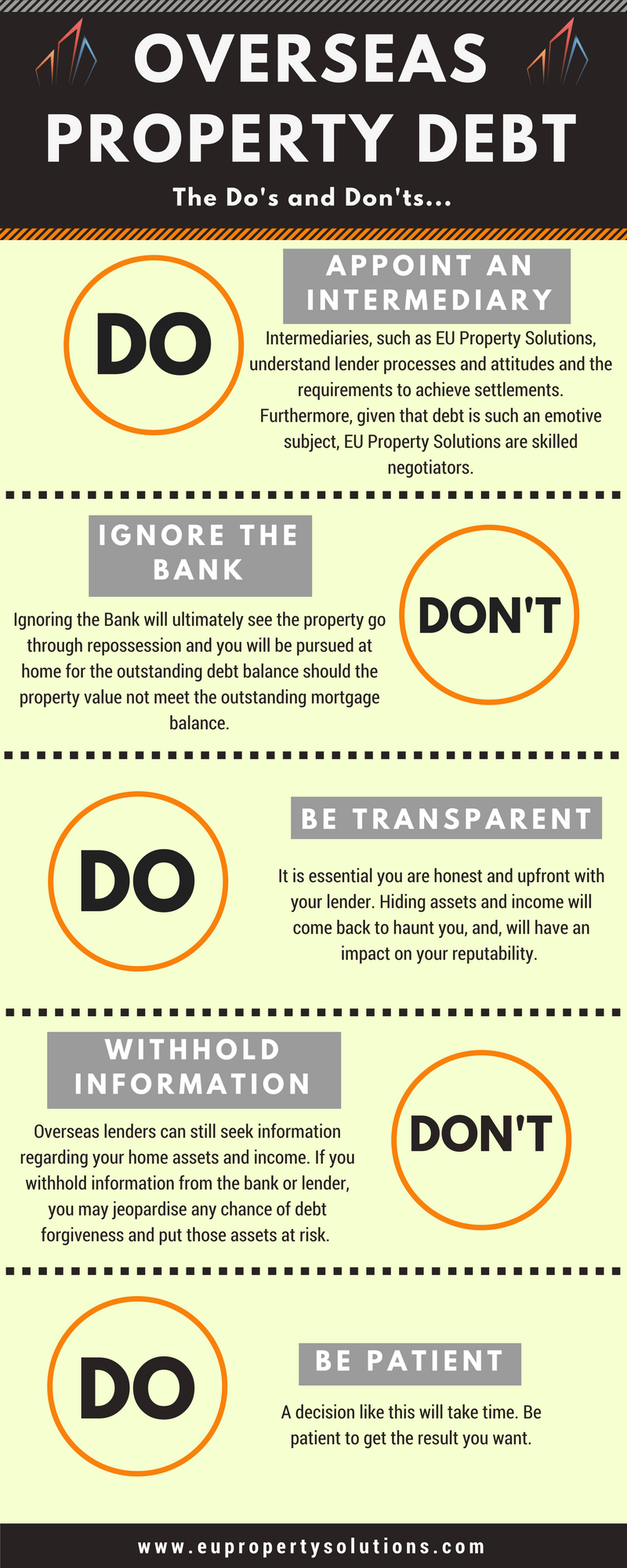Can overseas property debt affect my chances of buying a property back home?
Monday, June 18, 2018

A frequently asked question is whether an overseas property debt issue can affect your ability to buy property in the United Kingdom or your home country. There are circumstances in which it might.
The first thing to bear in mind is that it’s always a good idea to cooperate with your lender when you find yourself in distress. Many borrowers believe that their only option is to surrender their keys to the Bank and walk away from their overseas property in the hope that there will be no repercussions at home. You could call this the ostrich move, and it’s not recommended, as there are often other options.
In our experience, Spanish lenders have been known to place interim charging orders on uncooperative overseas borrowers. If you hope one day to sell your property to fund another purchase, your Spanish lender will have to be paid back first, with interest and charges. That could limit your budget in the UK.
We have also noticed a new type of issue for overseas borrowers. If you have borrowed in the UK to buy a property in Spain, then your mortgage is under the jurisdiction of the United Kingdom. We know of instances where borrowers have defaulted on mortgages taken out in the UK, which has allowed the lender to get the default recorded with the credit agencies on the borrower’s credit file, rather than going through lengthy Spanish Court Processes to achieve a judgment. It is unlikely that any lender will offer a mortgage to a borrower with a default on their credit report, so this can prove disastrous to those who need a mortgage to buy in the UK.
Cooperating with your lender is always recommended.
See the below graphic for the Do’s and Don’ts of overseas borrowing:

 0
Like
Published at 4:15 PM Comments (0)
0
Like
Published at 4:15 PM Comments (0)